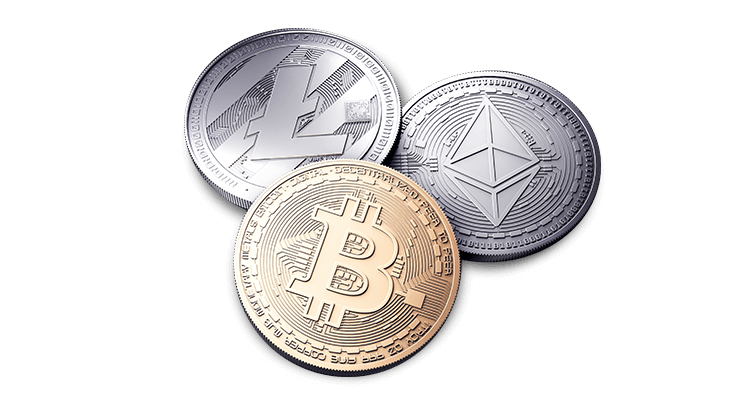Cryptocurrency Trading - What Is It And Here's What Investors Should Know
Cryptocurrency trading is the act of speculating on cryptocurrency price movements via a CFD trading account, or buying and selling the underlying coins via an exchange.
Author:Alex MercerReviewer:Nathanial BlackwoodApr 10, 2023122 Shares1.6K Views

Cryptocurrency tradingis important. Once you've decided to purchase Bitcoin, Ethereum, or another cryptocurrency, you'll need to open an account on a cryptocurrency trading platform in order to exchange your US dollars (or other currency) for digital assets.
Some, such as Coinbase, have been around since the early days of Bitcoin, when there was far less regulation over how cryptocurrency was bought, sold, and traded.
Others, such as Robinhood and PayPal, are better known for other services and have only recently begun to allow customers to trade cryptocurrency within their existing accounts.
Here's what you need to know about why selecting the right cryptocurrency trading is important, as well as the details experts recommend considering before making your decision.

How to Trade Cryptocurrency for Beginners - Learn Crypto Trading
What Is Cryptocurrency Trading?
Taking a financial position on the price direction of individual cryptocurrencies against the dollar (in crypto/dollar pairs) or against another crypto(via crypto to crypto pairs) is what cryptocurrency trading entails.
CFDs (contracts for difference) are a popular way to trade cryptocurrencies because they provide greater flexibility, leverage, and the ability to take both short and long positions.
The Growing Popularity Of Cryptocurrency Trading
Since Bitcoin's internet debut a decade ago, cryptocurrency trading has grown in popularity.
Cryptocurrencies are digital coins created with blockchain or peer-to-peer technology that employs cryptography for security.
They differ from fiat currencies issued by governments around the world in that they are not tangible, instead consisting of bits and bytes of data.
Furthermore, cryptocurrencies lack a central body or authority that issues them or regulates their circulation in the economy, such as a central bank.
Cryptocurrencies are not considered legal tender because they are not issued by any government entity.
Despite the fact that cryptocurrencies are not recognized as legal tender in the global economy, they have the potential to alter the financial landscape and this makes them hard to ignore.
At the same time, the blockchain technology, which forms the foundation of cryptocurrency creation, has opened up new investment opportunities for traders to capitalise on.
What To Look For In An Exchange
Accessibility
Due to state or national regulations, your location may prevent you from buying and selling cryptocurrency on certain exchanges.
Some countries, such as China, have outright prohibited citizens from using cryptocurrency exchanges.
There is a lot of regulatory uncertainty surrounding cryptocurrency in the United States, and some states have implemented their own regulations.
For example, New York requires exchanges to obtain a BitLicense before operating within the state, and only licensed companies are permitted to offer certain approved coins.
Most other states do not have as stringent regulations as New York, but many do regulate in some way or are working to do so.
According to the National Conference of State Legislatures, 31 states have pending legislation on digital currencies in their 2021 legislative sessions.
On a website or within the terms of service, you can frequently find information about an exchange's geographic limitations, as well as related accessibility factors, such as national currencies accepted.
Security
Cryptocurrency is not backed by any central institution, and your cryptocurrency holdings are not as safe as bank deposits or traditional investments.
Some exchanges, such as Coinbase and Gemini, keep any balances in the United States.
Dollars you keep in FDIC-insured bank accounts. However, FDIC insurance does not cover cryptocurrency balances.
Some exchanges have insurance policies in place to protect the digital currencies users hold within the exchange from hacking or fraud.
Coinbase, for example, has a $255 million insurance policy.
Account holders would be protected if Coinbase's reserves were hacked and any amount of cryptocurrency up to $255 million was stolen.
Others, such as Kraken, rely on their security practices rather than insurance policies to protect their clients.
Whether you intend to keep your crypto holdings in an exchange or only have them there for a short time before transferring them to your own wallet, the security of the exchange should be a top priority.
Examine how much of the exchange's assets are kept offline, in hard storage, for example.
Fees
Fees are another factor to consider, but don't let a high fee structure turn you off from an exchange.
“„The easier they make it for you to buy it, the higher the fee that you're going to pay
says Spencer Montgomery, founder of Uinta Crypto Consulting, a program that teaches new investors about cryptocurrency.
Higher fees may also be a worthwhile tradeoff for the additional protections and insurance provided by larger, more popular exchanges.
Exchange fees can be fixed, but they are usually a percentage of your trade.
Some exchanges, such as Cash App, charge variable fees based on price volatility.
Fees are frequently charged per transaction and can vary depending on whether you are the seller or the buyer.
There could also be variations depending on which currencies you trade.
Make sure you understand exactly how and when an exchange plans to charge you for your crypto transactions before handing over your cash.
Coins Offered
Not every exchange supports all of the thousands of cryptocurrencies available.
If you're looking for a popular coin like Bitcoin or Ethereum, you'll most likely find it on any exchange you're considering.
However, newer altcoins, coins with a very small market cap, or meme coins may necessitate a little more research.
Just keep in mind that these coins are frequently riskier bets on top of already highly speculative, more established cryptocurrencies.
That is why many experts advise investors to stick with the big names like Bitcoin and Ethereum.
With any crypto coin you’re considering buying on an exchange, only trade in a cash value you’re prepared to lose.
Storage
Storage is a contentious issue among cryptocurrency enthusiasts.
Many people believe in the adage "not your keys, not your coins," which states that you should keep the public and private keys associated with your crypto holdings in your possession rather than leaving them in the custody of the exchange.
However, as a beginner, an exchange that allows you to keep your cryptocurrency in your online account may be a good option.
After you've learned more about storage options and increased your holdings, you may decide to keep your cryptocurrency in your own wallet.
However, Ross cautions against using exchanges that only allow you to store on their platform, such as PayPal.
Robinhood recently announced that it will develop a cryptocurrency wallet so you can transfer your coins off-platform.
Tax Information
As if taxes weren't complicated enough, reporting cryptocurrency can add an additional layer of complication to your tax return.
“„As the tax situation surrounding crypto assets evolves, it will be critical for people to ensure that their personal tax situation is also up to date, Ross says.
Any cryptocurrency trades you make must be reported as capital gains on your tax return. That means you'll need to understand the value of your cryptocurrency when you buy it in US dollars, as well as the value when you sell it.
People Also Ask
Is Crypto Trading Profitable?
Investing in crypto assets is risky, but it can also be extremely profitable. If you want to gain direct exposure to the demand for digital currency, cryptocurrency is a good investment.
Buying the stocks of companies with cryptocurrency exposure is a safer but potentially less lucrative option.
How Much Money Do You Need To Start Trading Cryptocurrency?
How much capital do I require to begin investing in cryptocurrency? In theory, investing in cryptocurrency costs only a few dollars.
Most cryptocurrency exchanges, for example, have a $5 or $10 minimum trade. Other cryptocurrency trading apps may have a lower minimum.
Is Trading Cryptocurrency Safe?
Cryptocurrency held on an exchange or in a wallet is not FDIC-insured like bank money.
Make sure you trade and store your cryptocurrency on a platform with strong security measures, such as keeping a significant portion of your holdings in cold storage and requiring two-factor authentication for users.
The Bottomline
Additional factors to consider, according to Boneparth, include customer support, how well you like the platform's mobile app, and how easy the exchange is to use overall.
But, as experts have repeatedly stated, taking the time to learn as much as you can before investing in crypto is one of the most beneficial things you can do.
Consider the fee structures and security measures you are comfortable with, as well as the extra steps you will take to store your coins and your goals.

Alex Mercer
Author
Alex Mercer is a seasoned author and analyst specializing in wealth research, with a keen focus on evaluating the net worth of individuals across various industries. With over a decade of experience in financial analysis and wealth assessment, Alex has developed a nuanced understanding of the factors that contribute to an individual's financial status, from investments and assets to market trends and economic policies. His work involves in-depth reviews and analyses, providing insightful observations on wealth accumulation, management strategies, and the socio-economic implications of wealth distribution.
Throughout his career, Alex has become known for his ability to distill complex financial data into understandable and engaging narratives, making the subject of wealth and net worth accessible to a broad audience. His expertise is not just in numbers but in telling the stories behind them, highlighting the journeys, strategies, and decisions that lead to financial success or challenges. Alex's contributions to the field of wealth research are valuable resources for anyone looking to understand the dynamics of wealth in today's world, offering a unique perspective that bridges the gap between financial analysis and human interest.

Nathanial Blackwood
Reviewer
Nathanial (Nate) Blackwood is a distinguished financial journalist with a decade of experience in net worth analysis. He holds an Economics degree from the University of Finance and a Data Analysis certification, enabling him to blend thorough insights with engaging storytelling. Nate is known for making complex financial information accessible to a wide audience, earning acclaim for his precise and reader-friendly analyses. Beyond his writing, Nate is dedicated to financial literacy, actively participating in educational forums and workshops.
He is the founder of PureNetWealth, a platform that demystifies the financial achievements of public figures by exploring the strategies and decisions behind their fortunes. Nate's work bridges the gap between intricate economic concepts and the general public, inspiring a deeper understanding of wealth dynamics. Follow Nathanial Blackwood for essential insights into the financial narratives shaping our world.
Latest Articles
Popular Articles


